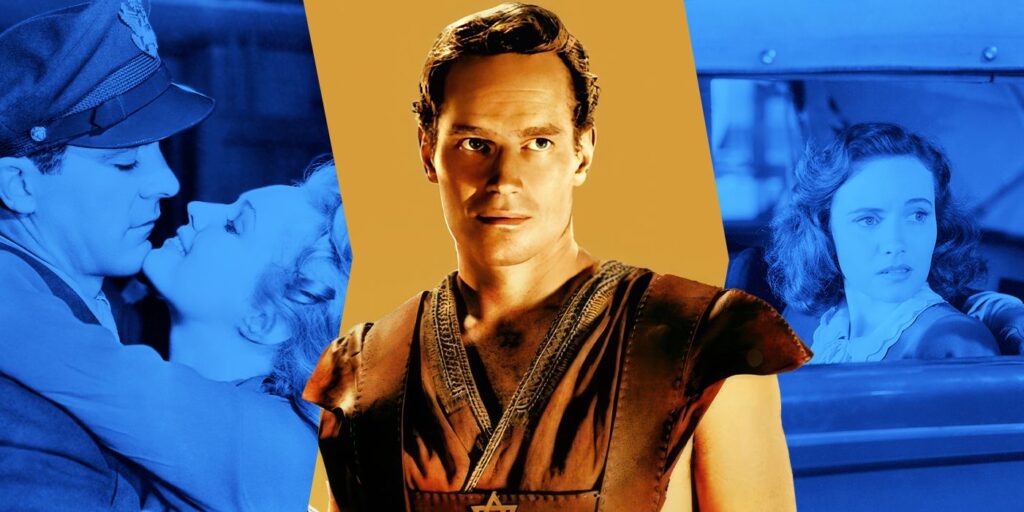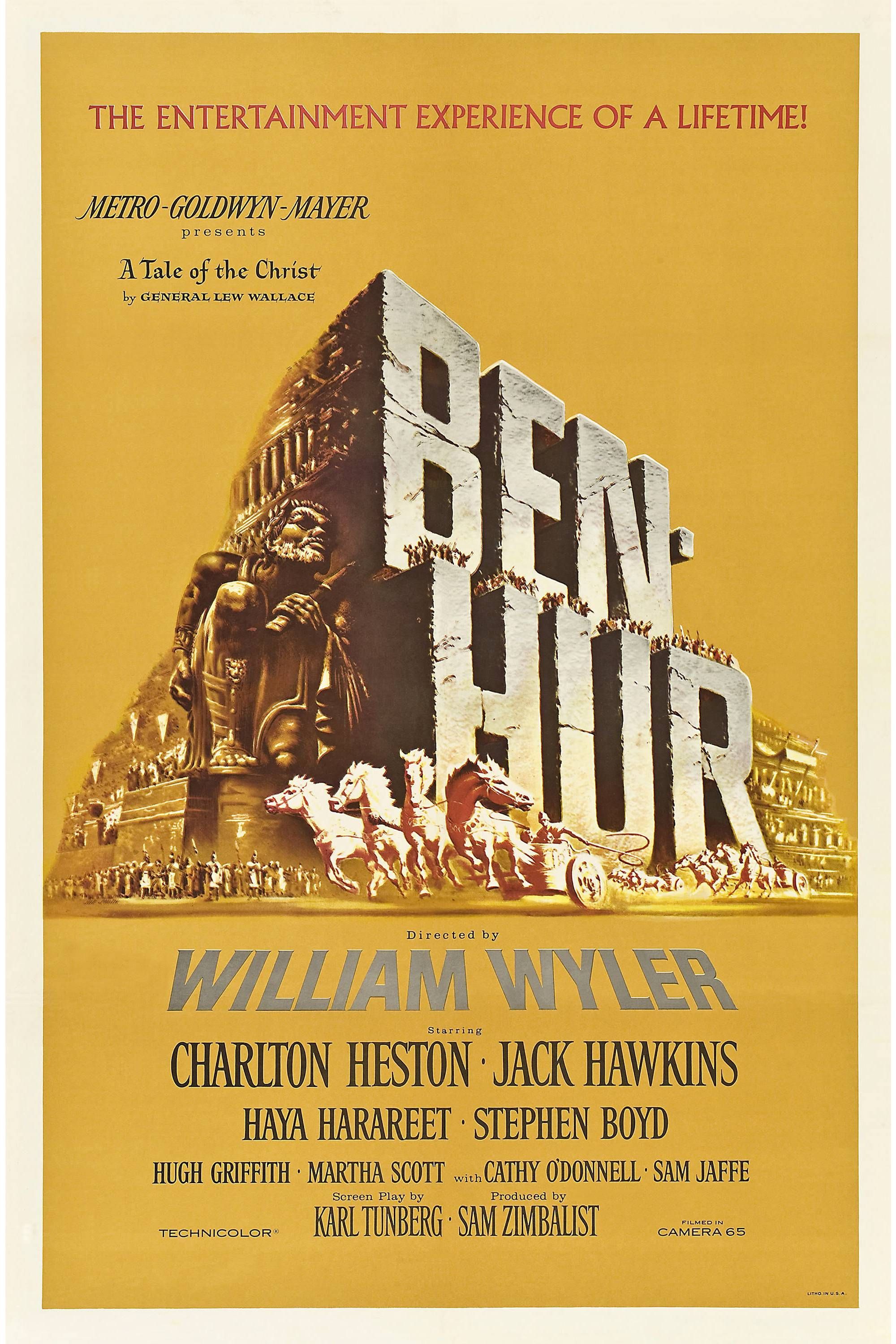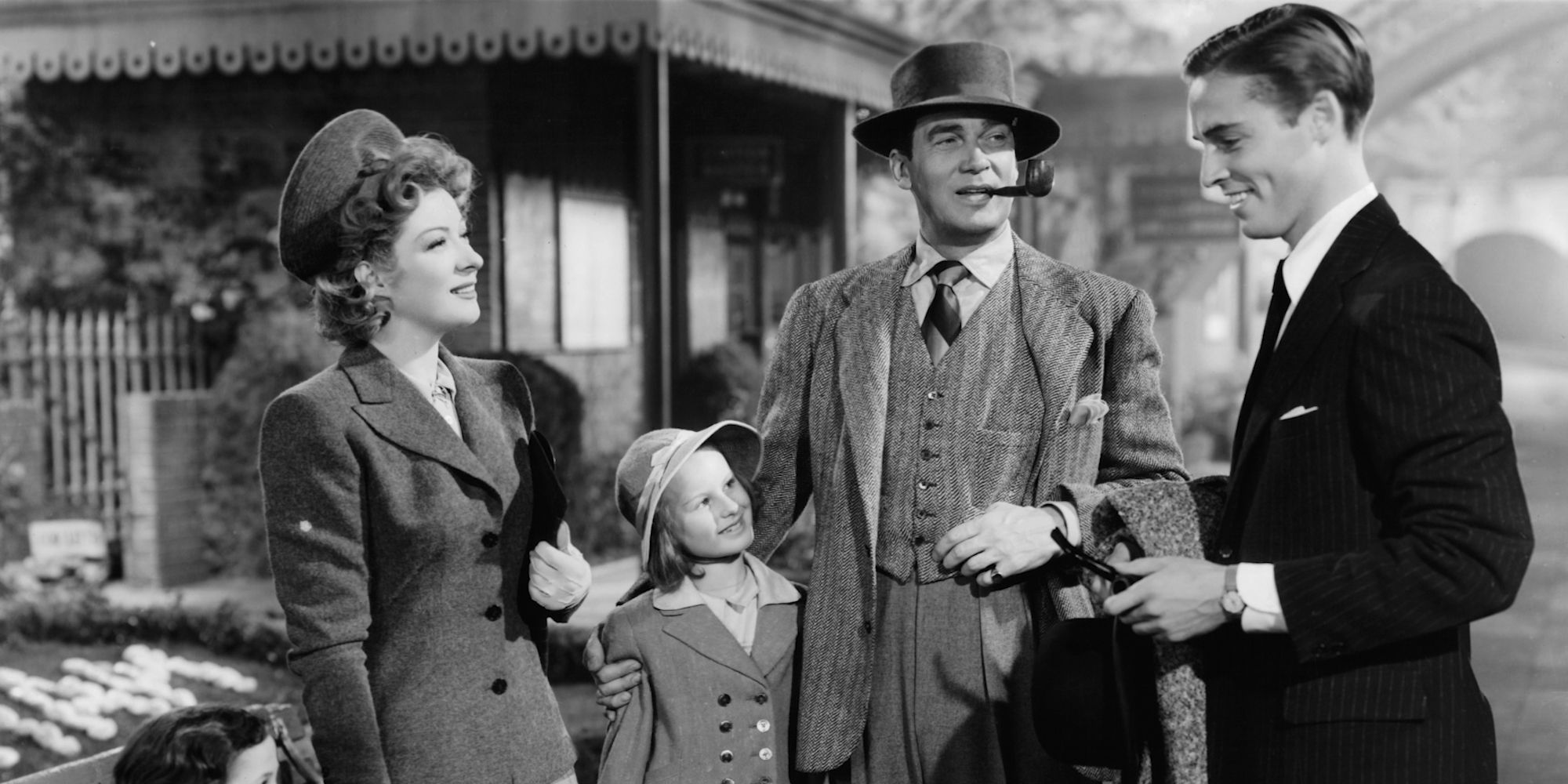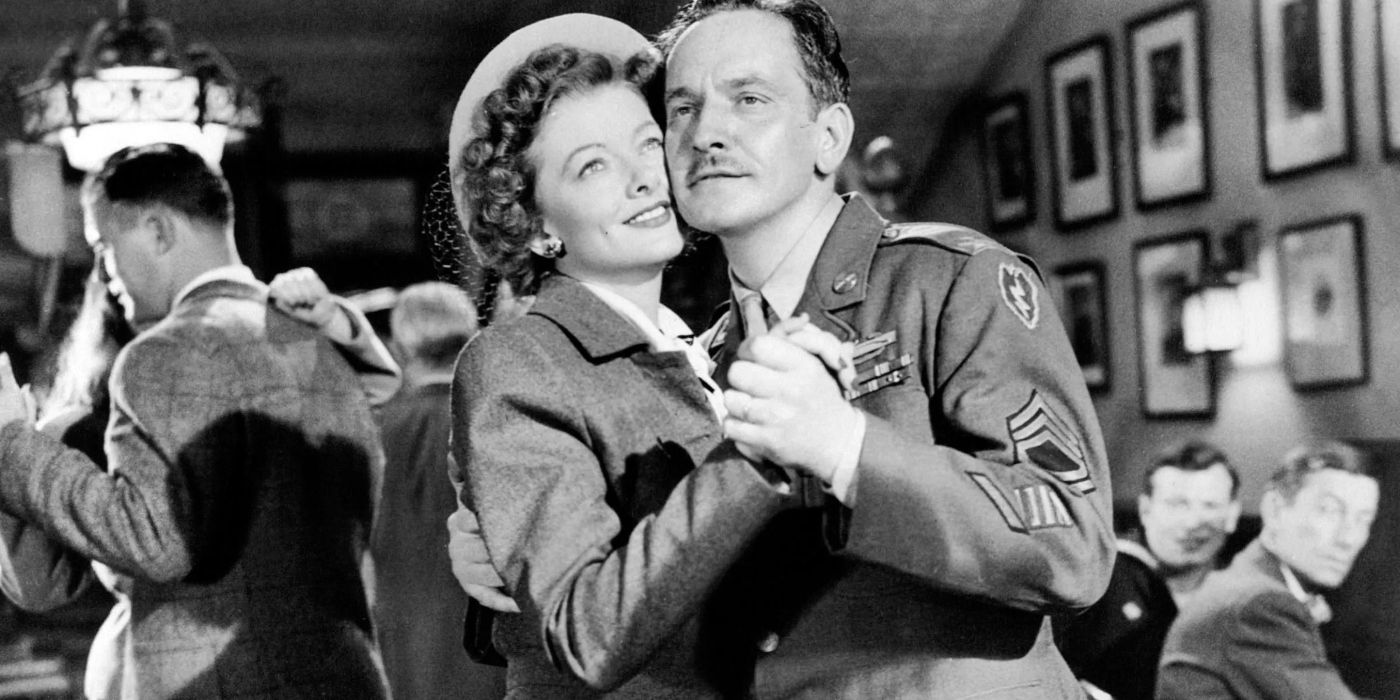All 3 William Wyler Oscar Wins, Ranked

Without a doubt, William Wyler was one of the greatest directors active during the Golden Age of Hollywood, with his most notable movies coming out during the 1940s, 1950s, and 1960s. Some of them won Oscars for Wyler himself while also winning Best Picture in their respective years, and they’ll be focused on below… though it’s worth pointing out that perhaps the director’s best film, Roman Holiday, did not win him an Oscar, though Dalton Trumbo won for Best Story (a since discontinued category), Audrey Hepburn won Best Actress, and Edith Head won Best Costume Design – Black-and-White. Additionally, Wyler was nominated for Best Director, and other nominations he received came for his work on movies like Detective Story, The Heiress, and Friendly Persuasion.
To return to the movies that won Best Director and Best Picture, though, there are three in total: two of them being war movies released either during or just after World War II, and the third being one of the biggest films of its time, and an essential epic in pretty much every regard. So, this is a pretty strong batch of movies, and though one has to technically be ranked last, that shouldn’t suggest it’s inessential or worth skipping, by any means, if you have a fondness for films from Hollywood’s Golden Age.
3
‘Mrs. Miniver’ (1942)
Starring: Greer Garson, Walter Pidgeon, Teresa Wright
Mrs. Miniver is the oldest film of William Wyler’s to win him Best Director while also winning Best Picture, and it stands as the most underappreciated of the three, too. It was a film that looked at World War II at a point in time when it was still being fought, much like another iconic 1942 movie, Casablanca. That one also happened to win Best Picture, but not until the 1944 ceremony, when it was eligible because it had a wide release in 1943. Mrs. Miniver, a wide-release film from 1942, won in 1943. It’s also more explicitly about the war and how it affects civilian life, while Casablanca is more of a romantic drama where the war is a bit more of a background element (albeit still important narratively).
This all means that Mrs. Miniver ranks among the almost two-dozen Best Picture winners to date that are classifiable as war movies, and while it’s not one of the very best in such company, it’s also far from one of the worst. It aims to inspire some level of hope and present reasons to persevere through the then-ongoing war, and history ensured that its release came pretty much right around the middle of the Second World War. This all makes it arguably more of an interesting cinematic time capsule than anything else, though, judged as a movie, it’s still strong, with compelling performances, a solid screenplay, and typically confident direction from William Wyler that never feels too showy. Mrs. Miniver is mostly grounded, and only a little overly idealistic, the latter of which can be justified by taking into account when the film was released, and the fact that it was very much trying to inspire positive outlooks during a very difficult time in history.
2
‘The Best Years of Our Lives’ (1946)
Starring: Myrna Loy, Fredric March, Dana Andrews
While Mrs. Miniver looks at life during wartime (it ain’t no party, it ain’t no disco, it ain’t no fooling around), The Best Years of Our Lives is all about life immediately after wartime. In that sense, it’s even less of a war movie than Wyler’s previous Best Picture winner, which itself was light on the sorts of combat sequences you might find in a more traditional war movie. It’s a post-war movie in every way, with the epic runtime here being used to capture both the emotional highs and difficult lows of adjusting to life after taking part in the largest war in world history. Like Mrs. Miniver, it is an ultimately hopeful film that was likely cathartic for audiences back in the 1940s.
In that sense, The Best Years of Our Lives can also be appreciated for its value as a time capsule of sorts, but it’s quite a bit more than that, arguably standing as one of the best drama films of its era. It’s admirably sensitive and empathetic, and stays engaging throughout even though it’s pretty light on plot and relatively restrained when it comes to the arcs the characters go through. The Best Years of Our Lives is cinema as therapy, in a way, and at a time when things like post-traumatic stress disorder were only starting to be understood, which makes it easier to admire and appreciate. You could call it dated, but that’s not so much of an issue when it’s so specifically about the time in history at which it was made. It’s about the American way of life following a terrible war, and aims to show that there could well be a way forward for those who made it out of the whole thing alive.
1
‘Ben-Hur’ (1959)
Starring: Charlton Heston, Jack Hawkins, Haya Harareet
The third movie directed by William Wyler to win Best Picture and Best Director was Ben-Hur, and it also stands as the best of the three. It’s one of the defining epics not just of its era, but of all time, justifying what may sound like an obscene runtime (close to four hours) by doing so much with all those minutes. Its titular character is a man who’s living at the same time as Jesus Christ, though his story only occasionally crosses over with the events of the Gospel, because most of Ben-Hur is about how that central character is sold into slavery and fights for his life and the opportunity to get revenge against the old friend who betrayed him.
You can’t talk about Ben-Hur without mentioning the chariot sequence, which has some of the best stuntwork of all time, and stands as one of the greatest set pieces in cinema history. It runs the risk of making the rest of Ben-Hur look a little underwhelming in comparison, but that thankfully doesn’t quite happen. Everything that’s not that big sequence still delivers spectacle, awe-inspiring production design, and broad emotions. Ben-Hur could well be considered one of the very best movies of all time, from any genre, and it takes a special kind of filmmaker to helm such a project and make it work so well. Wyler didn’t make anything on this scale following Ben-Hur (though some of his 1960s films, like The Children’s Hour and Funny Girl, were quite good), but that’s okay, because it’s hard to get much bigger than Ben-Hur.

- Release Date
-
November 18, 1959
- Runtime
-
222 Minutes
-

-

-

Hugh Griffith
Scheich Ildirim
-

Jack Hawkins
Quintus Arrius







